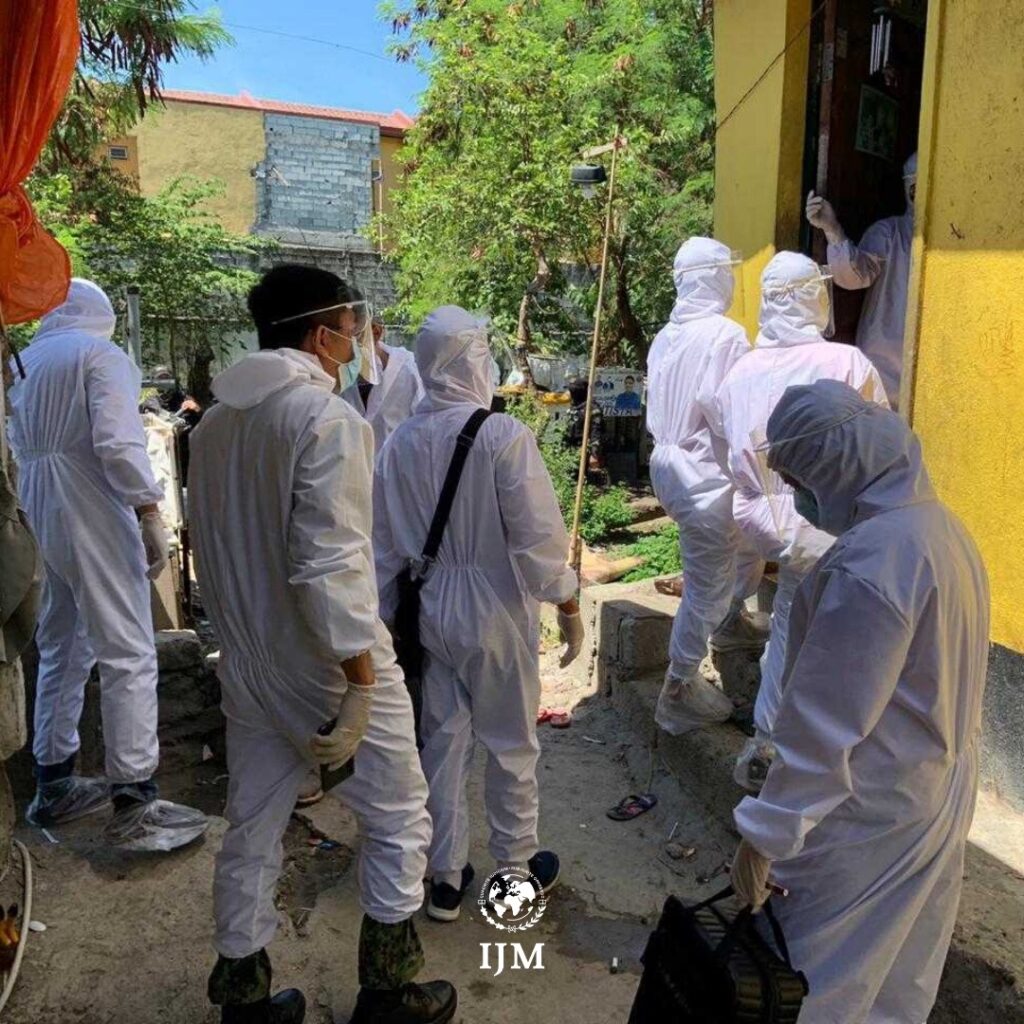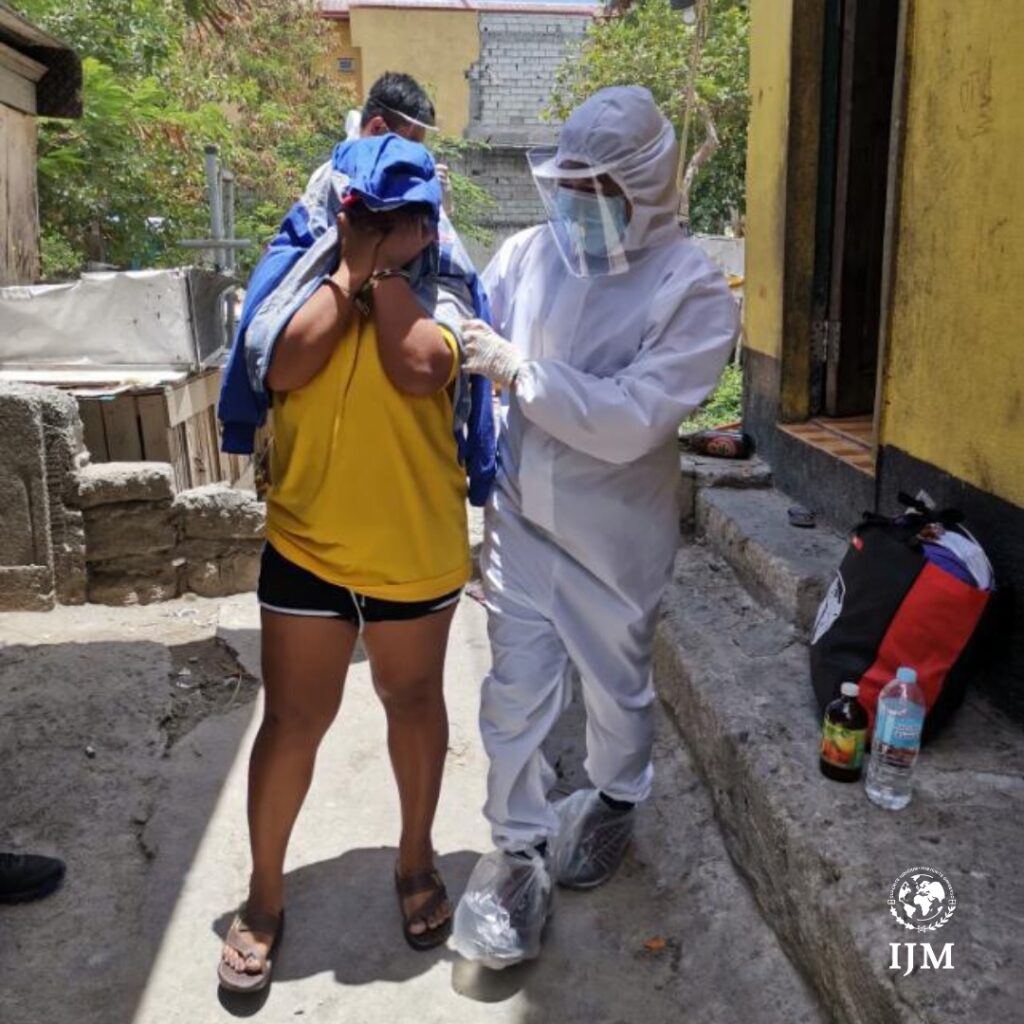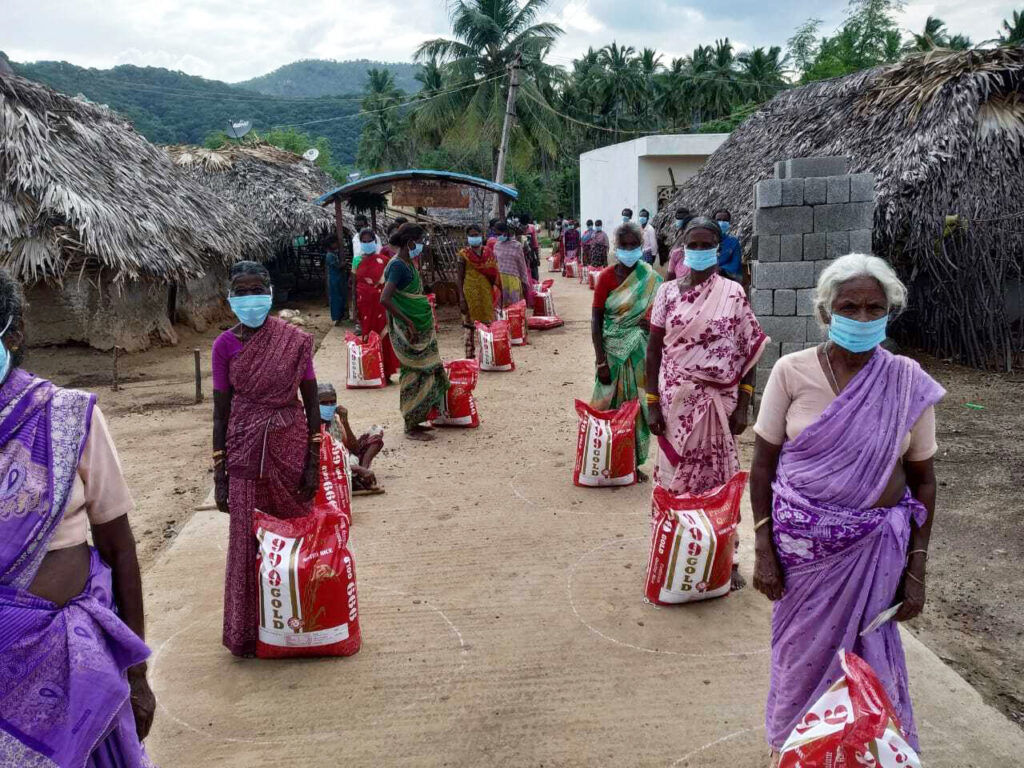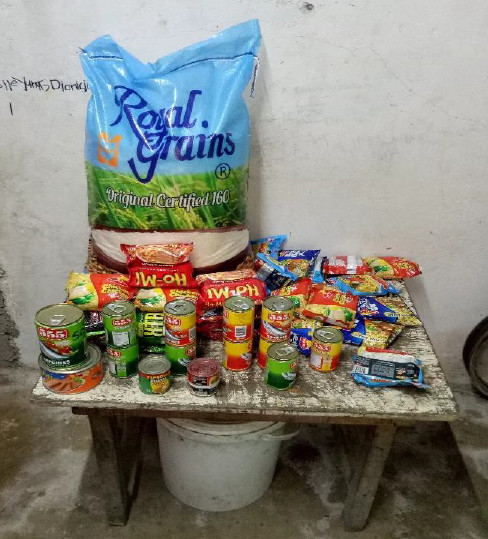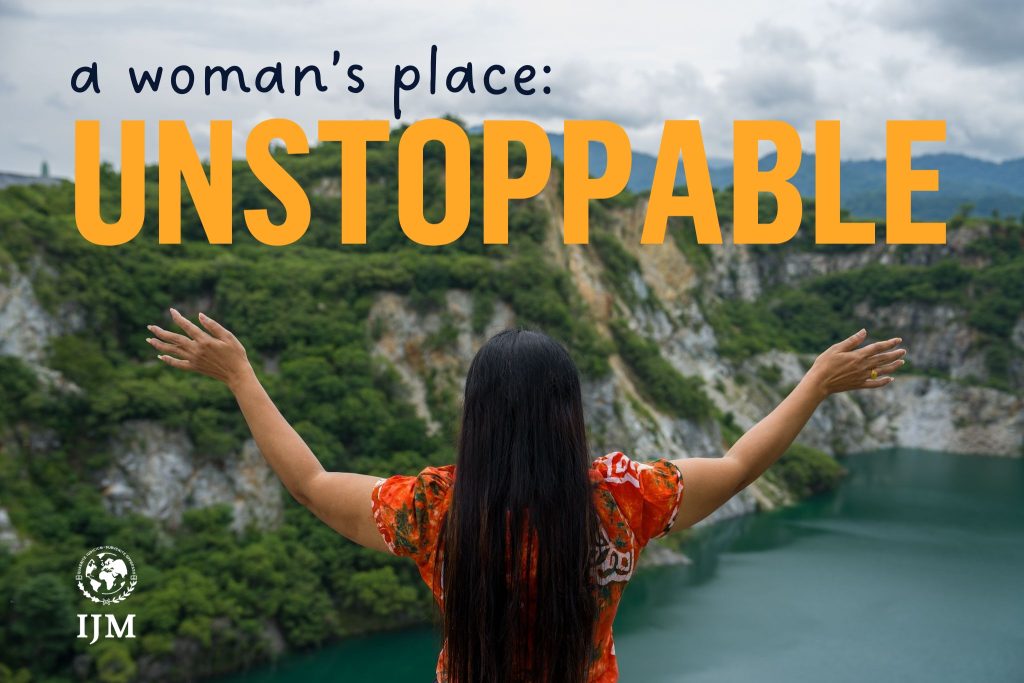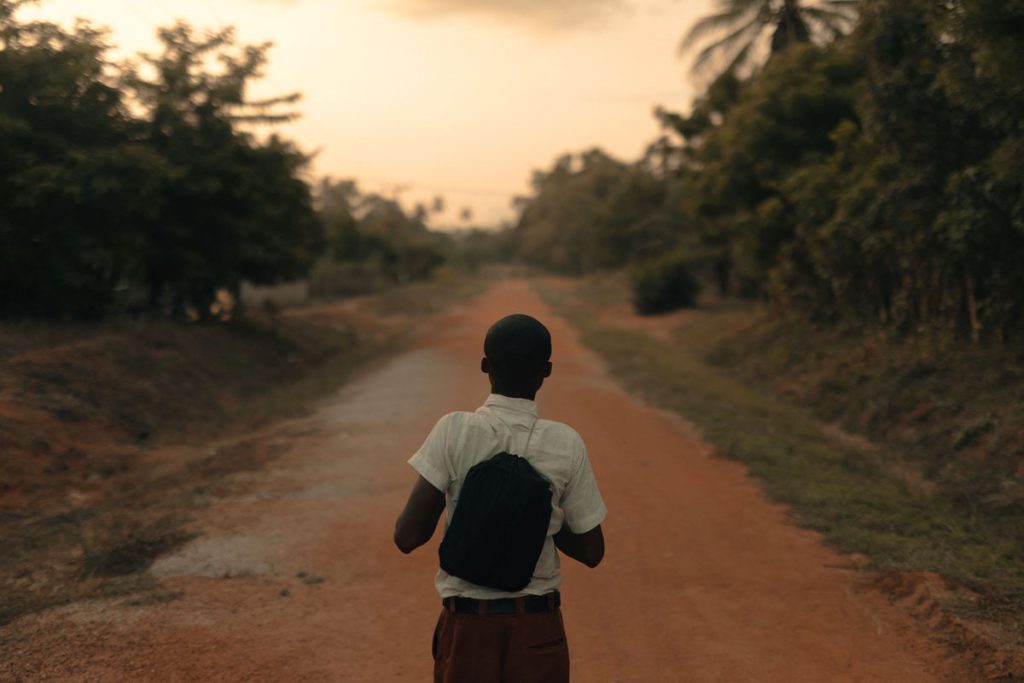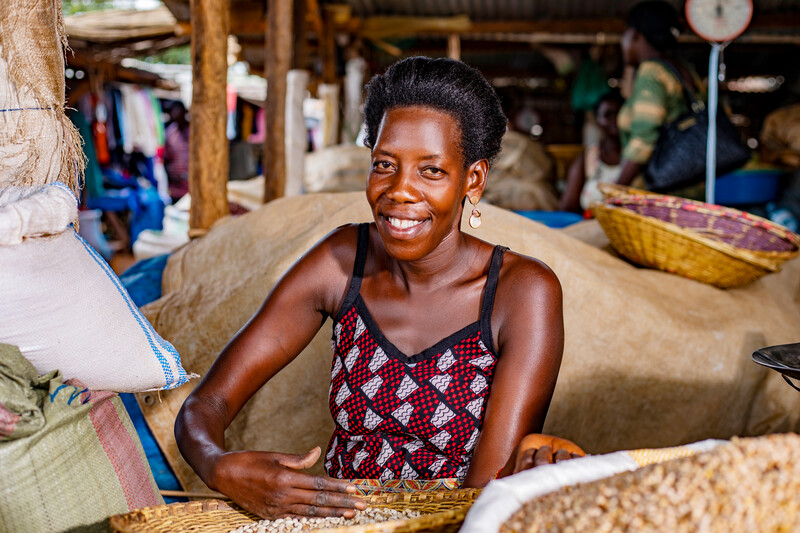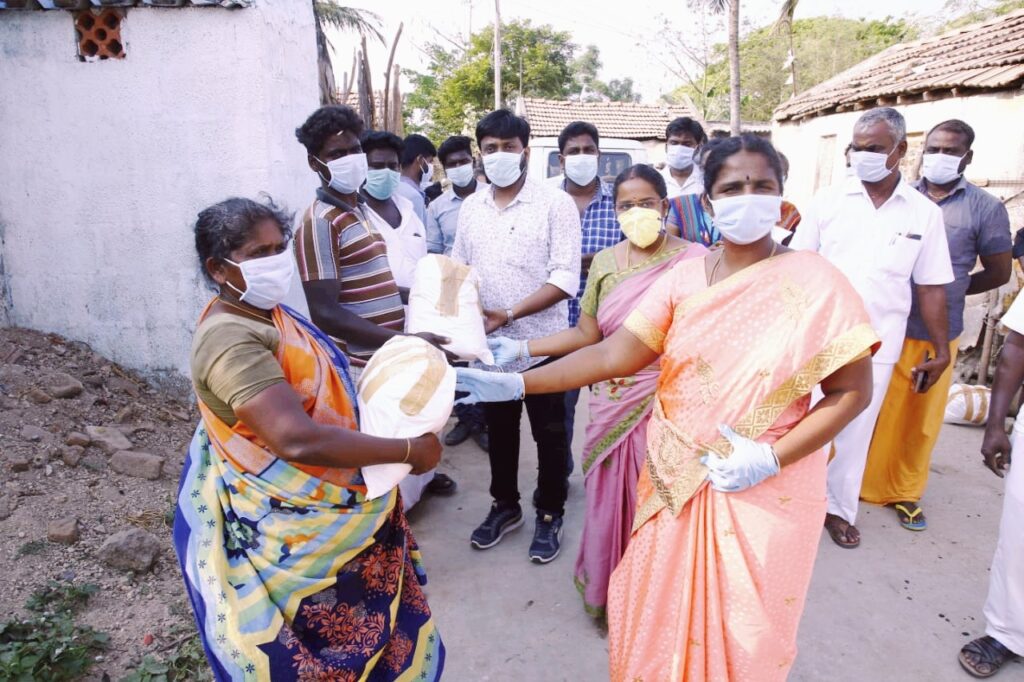
“Lockdown at home for people with jobs mean [they can] chill and relax. But lockdown for us is being caged with no food and water. I don’t know how long we have to endure.”
Migrant fisherman stranded in Thailand
Nine million additional children are at risk of being pushed into child labour by the end of 2022.[1] The proportion of children among detected trafficking victims has tripled.[2]
For those already vulnerable, COVID-19 has seen the risk of violence and exploitation surge.
What did IJM do during the pandemic?
IJM’s response has been to step up and utilise our years of work as a trusted, long-term government partner to respond and protect communities from the virus and connected violence like human trafficking.
In South and Southeast Asia, the pandemic revealed locations of forced labour slavery that were once invisible. IJM was there to help the government, championing them with resources and trauma-informed practices to help identify and pull children and families out of violence.
Other countries faced spikes in domestic violence and reporting systems overloaded. IJM was there with transport and supplies, including direct assistance and collaboration with government partners in Kenya, Uganda, Guatemala and the Philippines.
Throughout 2020, we focused on discovering, infiltrating and disrupting private trafficking networks. We’re partnering with agencies in online investigations and criminal analytics.
In Ghana, we’re working with Maxar to access otherwise expensive satellite technology and track boats on the lake where children are trapped in slavery.
In Southeast Asia, IJM and local and international law enforcement members of the Philippines Internet Crimes Against Children Center (PICACC) doubled its operational impact in 2020 compared to the prior year. Seventy-nine operations resulted in the arrest of 41 suspects and the rescue of 231 victims of OSEC.
How many people has IJM helped during the pandemic?
Despite COVID-19 limiting our own operations, IJM was still able to:
- relieve 8,671 people from violence and slavery between April 2020 and March 2021
- ensure the arrest and restraint of 927 traffickers – rescue is important, but ultimately, the violence stops when we stop the violent
- remotely assist local justice officials by providing personal protective equipment (PPE), transport assistance and consultations
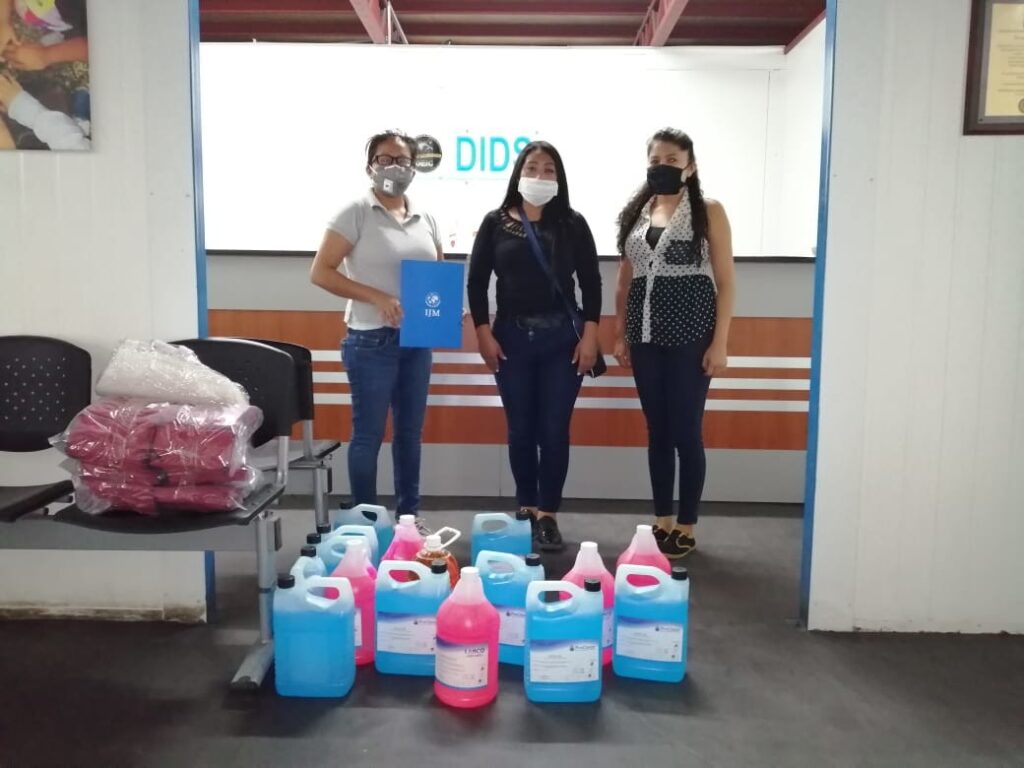
- work with local partners to support survivor leaders like those from the Released Bonded Labourers’ Association (RBLA) as they provided tangible relief to vulnerable families and helped rescue those still trapped in slavery[3]
- assist more than 38,000 people with direct crisis relief through partnering with over 340 local NGOs and community organisations to deliver relief kits and food assistance.
- reach over four million people through local community-based COVID-19 awareness efforts.
How have Australians helped?
If this is impressive it’s because of our Australian supporters. Behind these results is the partnership of individuals, churches and corporations in Australia.
In fact, Australians have enabled IJM Australia to fund our largest international program contribution since our launch in 2014. More than AUD$6.8m went to justice system strengthening programs across Africa, South Asia and the Asia Pacific at a time when the world’s poorest needed it most.
As you invest through giving to these programs, you are bringing protection to millions of children and families. Thanks to your leadership, you are helping many to be safe so they can face the future without fear of violence.
Jacob Sarkodee is Chief Impact Officer at IJM Australia. Follow him on Twitter and LinkedIn.
Become a Freedom Partner giving monthly to keep IJM’s frontline work going, even during a pandemic.
Footnotes
[1] https://www.unicef.org/press-releases/child-labour-rises-160-million-first-increase-two-decades
[2] https://www.unodc.org/unodc/frontpage/2021/February/share-of-children-among-trafficking-victims-increases–boys-five-times-covid-19-seen-worsening-overall-trend-in-human-trafficking–says-unodc-report.html
